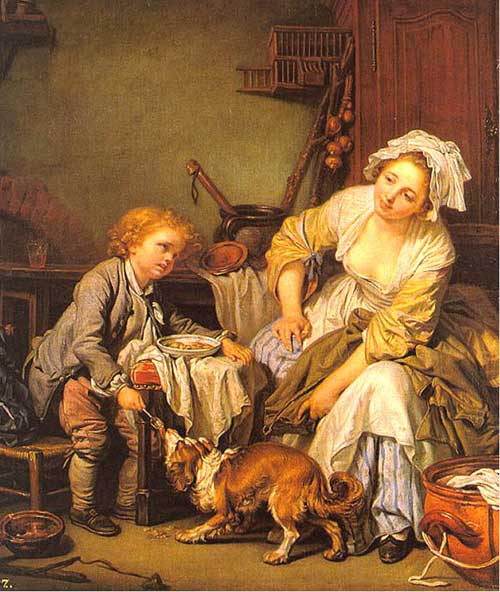The Mom In A Merica
Lillian, age four (well, five now, but I'm copying this from the other blog and she was four when I wrote it), learned in preschool that she lives in America. Naturally, to a four-year-old this sounds like she lives in a Merica.
Lillie has decided that she has another family in Merica, one with a mom and dad and sometimes sisters and brothers, just like here, with one major difference. Everyone in Merica is nicer to her than we are.
“My mom in Merica does anything I say," she says. “ My daddy in Merica always plays games with me." If she's crying, she'll yell between sobs, "You need to be a good mommy like MY mommy in Merica!"
Sometimes she tells us that she really needs to get back to Merica because her family there has gone without her for too long. She seems worried about them. She almost packs up, but so far we’ve been able to convince her to stay a while longer.
The thing is, this isn’t just something she invented to make Mommy feel guilty about not living up to the (far superior) mom in Merica. She really seems to believe in the place. When she’s in a good mood, and talkative, she’s capable of chattering away for quite a while about the details—exactly what her room in Merica looks like, how many sisters there are, and what kind of car they have. It’s all real.
It reminds me a bit of life with Lillie’s now seventeen-year-old sister, back when she was little. She had “baby sisters," a whole horde of them (the number varied) who showed up when necessary. No one else could see them. This all started when I had a miscarriage. We’d already told her to expect a baby brother or sister, so after the baby brother-sister was no more, the "baby sisters" emerged.
Once I tried to use the baby sisters to my own advantage. “Look," I said, “you have to go in the house now. We’re done playing outside. Look, your baby sisters are going in." I pointed to the door.
She looked at the door and then looked at me in disgust. “I don’t see them," she said. So much for that.
This same child also made friends with a swing, her first week in second grade. We'd just moved. It was a new school in a small town where no one wanted to be friends with her. She was a rather retiring child anyway, and young for her grade. So she made friends with one of the swings. She worked hard to convince herself that this swing had a personality and a desire to be friends. It helped her look forward to recess.
The thing is, this particular child is about to graduate high school (not in the small town, we moved) in an impressive honors program, after a successful high school career which included parts in every school play, president of the drama club, reviews published in local papers, a part-time job, etc. etc.
Makes me think that imaginary friends have something to do with coping skills, something that signals success in later life. It makes sense, really—-what better way to deal with us, our messes and our moods and our lack of patience, than to have a perfect family in Merica that can hardly wait to have you come home? Who cares what we think? The Mom in Merica is always there waiting to assure Lillian that everything is really okay.
I’ll think I’ll have my own family in Merica. They’re all going to pick up after themselves all the time, they'll never ask for money, and they’ll LOVE to cook dinner for me.
Blog Archive
About Me

- Thurbersmom
- Bedrock, Missouri
- Six kids, bio and adopted. Dogs, cats, birds, rabbits. Husband Fred (as in Flintstone). And me. Why blog? Well, some people are compelled to write things down, and some people aren't. It's like that tree that falls in the forest with no one there to hear it--if you don't write it down, did it really happen?